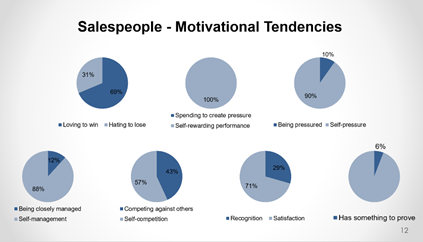In this blog post, we dive into the 5 Keys to Successful Sales Coaching & Growth and the idea that data can help you discover real-time information about your salespeople. This data allows everyone in your organization to make real-time decisions and real-time and intentional coaching decisions.
If you're looking to increase sales in 2020 and beyond, utilize these 5 keys starting today!

The article might disappoint you if you are looking for the latest and greatest in financial technology, sales technology, or any kind of technology for that matter. Data is part of this article but not super BIG Data that you read about in the recent issue of Big Data Quarterly.
The 5 Keys to Successful Sales Coaching & Growth have more to do with consistency in execution then any specific kind of sales enablement or CRM tool that you use.
Successful sales executives and managers rely on data because they realize that it can, and will, provide you with real-time information. The real-time data allows everyone in the organization to make real-time decisions and real-time and intentional (Thank you Bill Eckstrom) coaching decisions.
That being said, the technology and the data is useless unless you have these 5 keys on your sales management "key ring":
- Performance Management
- Coaching for Success
- Motivation That Works
- Sales Talent Acquisition Routine
- An Effective Selling System
1.) Performance Management – In our Sales Management Certification and Quick Start Programs, we start with Performance Management. Performance management should not occupy a lot of time, but must the be the base of everything else that you do.
Performance management is a process of making sure that you:
- Establish consistent metrics to determine success
- Conduct 1-on-1 meetings where people self-determine what success and failure is
- Agree to a coaching process and methodology
- Gather real-time information via Huddles
- Report the findings of the data
- Catch people early when they are not performing to the level they committed to
2.) Coaching for Success – Based on the extraordinary discussion and the subsequent Success Formula built for each person you collect via Huddles, you should:
- Compare actual against the model
- Identify choke points
- Determine if outcomes are a result of effort or execution
- Conduct 1-on-1 coaching sessions to help change behavior or improve skill.
3.) Motivation that Works – As you see in the graphic below, salespeople are motivated in various ways. How could you possibly motivate someone if you don’t know what motivates them or how they are motivated to be successful?

The Sales Improvement and Effectiveness Analysis (Thanks Dave Kurlan and Objective Management Group) not only identifies the level of motivation for each salesperson on your team, but also tells you what motivates them.
4.) Recruiting Talent that Will Succeed – There is a big difference between talent that can succeed and talent that will succeed in selling. If your organizational growth is dependent on organic growth, then you need to have data that will tell you a couple of things:
- Is my current team wired and do they have what it takes to grow to the next level?
- Assuming you need more horsepower under the hood, then you have to make sure that your new hires have the:
- Will to sell
- Sales DNA
- Appropriate Sales Competencies
5.) An Effective Selling System – Must be staged with milestones to determine your salespeople's progress with their prospects. Too often, companies use a CRM system to get a numeric value of the pipeline and perhaps even values within stages of the pipeline. However, if your data doesn’t include a numerical component that validates that steps are covered within each stage, then your pipeline forecasts are more subjective then objective.
Additionally, it is THIS data that provides you insight into the effectiveness of the individuals on the sales team.
Sales growth must become a priority and not just a problem that you continue to kick down the road. Continuing to ignore the Grey Rhino will sooner or later cost you.
Are you evaluating sales training programs? Can we help you find the right approach for your company? Sign up for a personalized Demo of one of our programs below!










